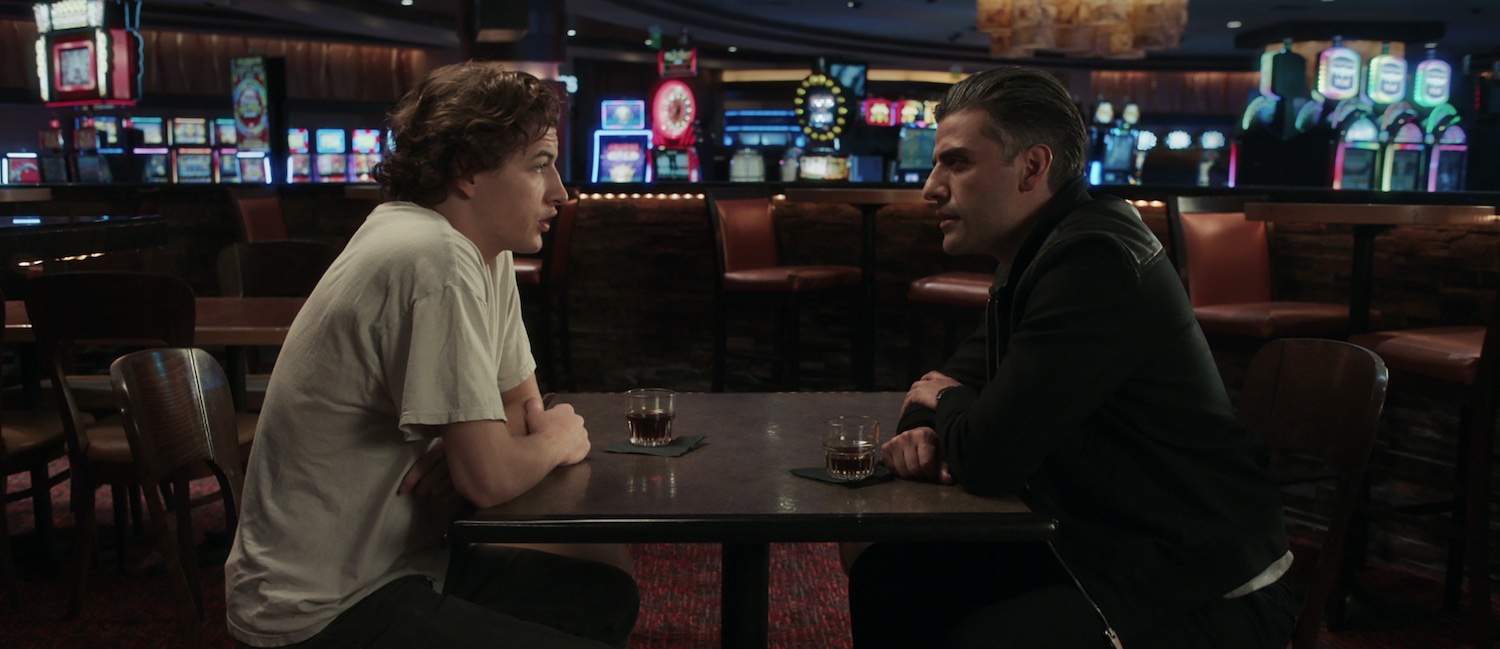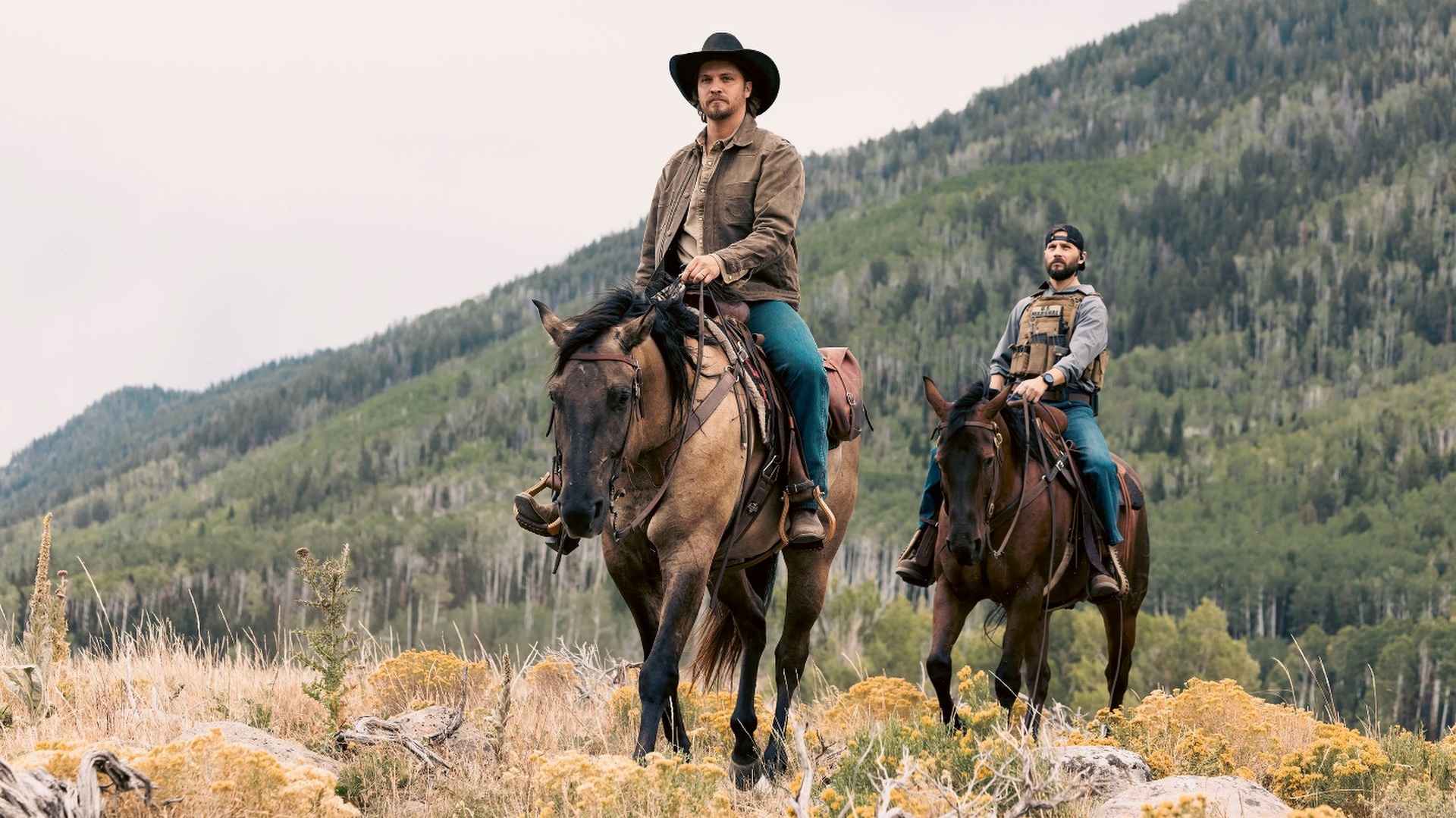What to Watch Verdict
Paul Schrader's late-career resurgence continues with this mesmerizing character study.
Pros
- +
* Oscar Isaac was born for a role like this one that merges his effortless charisma with unsettling stillness.
- +
* Tiffany Haddish continues to grow by leaps and bounds as an actress while retaining a singular, irresistible authenticity.
Cons
- -
* Schrader evokes the specter of his troubled main characters, but without seeming to repeat their stories.
You can trace a direct line from Taxi Driver to The Card Counter and make a couple of comfortable stops in Paul Schrader’s filmography along the way, including his Oscar-nominated First Reformed, and the path gets no less interesting. The men at the center of these movies are in many ways the same, although they reckon with the world in different professions, and take different approaches. The world around them shaped them, and still tests them. And in each case, they make a decision that treads the line between ruin, redemption and catharsis. If Schrader’s latest exemplifies his most well-established instincts, it evidences how effective they can be implemented when he utilizes as much discipline as the characters he is portraying. Meanwhile, Oscar Isaac simmers with unresolved tension in a performance that deserves to be counted among his best.
Isaac plays William Tell, a former military interrogator who became a card player (yes, and counter) after serving an eight-year sentence for crimes he committed at Abu Ghraib. Although he bets small in order to avoid hassles at the casinos where he earns his living, William attracts the attention of two people: Cirk (Tye Sheridan), a young man seeking revenge on John Gordo (Willem Dafoe), the civilian contractor who trained his late father — and William — to commit their heinous acts of torture; and La Linda (Tiffany Haddish), a poker broker who stakes players on behalf of wealthy clients to win big in local and regional competitions.
After initially turning down La Linda’s offer to join her “stable” of players, William agrees to compete in higher stakes games in order to raise money for Cirk, hoping that clearing the young man’s debt and giving him a fresh start will dissuade him from seeking retribution against Gordo. But as his fortunes rise, drawing him closer to La Linda, and he spends more time with an increasingly restless Cirk, William becomes more determined than ever to carry out his plan, even as the visibility of his success threatens to undermine the anonymity he has quietly cultivated since being released from prison, and the comparative safety of a life of solitude and detachment.
If the most striking difference between Taxi Driver and this film is the time and culture in which it was made, The Card Counter feels of a piece with First Reformed, as the lead characters find themselves compelled both by training and irrepressible instinct to act on behalf of something greater than themselves. William plays cards for money, but approaches a gambler’s vocation with almost ritualistic discipline, minimizing his presence at the table and in the casino itself in order to be forgotten, the result of a violent, messy past that would make him instantly recognizable. But where Ethan Hawke’s Ernst Toller openly wrestles with his faith and eventually decides to lash out at the community around him, Isaac’s William Tell retracts into himself and maintains absolute control until the protective instincts that leak out of him reach an irrepressible crescendo.
Similarly Cirk, the young man for whom he takes responsibility, is as much a victim as Taxi Driver’s Iris, but William’s resistance to openly instructing him is driven by an avoidance of repeating the horrific and self-destructive mentoring he received from Gordo. Meanwhile, La Linda admires his poise and his self-control, but understandably becomes intrigued by his almost single-minded determination to help Cirk, even if it’s at the expense of the path he’s laid out for himself. And then there’s Gordo, now a private security consultant who escaped culpability for the crimes that he trained William and Cirk’s father to commit, who has completely and easily moved on from the traumatic events that became so formative to his younger counterparts.
Isaac is an actor who exudes charisma and understands stillness, the two qualities that this character most requires; with the possible exception of someone like, say, Michael Fassbender, it’s hard to imagine someone who could play William better. Sheridan’s turn as the disgruntled, flabby Cirk gives Isaac a perfect counterpart to work against, offering a character carrying a half-baked idea for revenge around like it’s body armor that reminds William what he’s worked so hard to forget or move on from. On the other hand, Haddish continues to surprise on screen while delivering a kind of authenticity that some actors never learn; not only does she have instant, remarkable chemistry with Isaac, but she provides a delicate air of unpredictability — a sense of sincere and resilient emotion — that jostles William’s stoicism in a different way.
Outside of all of this, Schrader portrays low-level gambling as a routine, obligatory sort of practice not unlike the way Paul Thomas Anderson did in his debut Hard Eight; it’s a job, not an exotic passion. Additionally, he frames William’s journey by a traumatic history which feels unexpectedly urgent given current events, hinting at a commentary we can fill in for ourselves as we watch the repercussions of a soldier’s service reverberate painfully, without his superiors or the instigators facing consequences he will never be able to escape. And so, it is in some sense a gambling film that could be paired with Hard Eight or Rounders or even Robert Altman’s California Split, as Isaac explains card counting and the dizzying mechanics of card playing, and also an antiwar polemic, a piercing scream of outrage over the military industrial complex and its influence on policy, procedure and most of all personnel.
The latest updates, reviews and unmissable series to watch and more!
But without giving anything away, Schrader’s latest shares in common with First Reformed a delicate thread of optimism that keeps it from being a pure expression of hopelessness or misanthropy, and that’s as much as it needs to fully allow William Tell to follow the path that has been set before him without leading himself and the audience both into irredeemable darkness. Ultimately, The Card Counter is a really extraordinary film whose familiarity, at least within director’s body of work, never undercuts its efficacy; perhaps it's because in telling the story of a character who can predict the cards he’ll get long before they’re laid before him, Schrader still somehow manages to deal some intriguing surprises.
Todd Gilchrist is a Los Angeles-based film critic and entertainment journalist with more than 20 years’ experience for dozens of print and online outlets, including Variety, The Hollywood Reporter, Entertainment Weekly and Fangoria. An obsessive soundtrack collector, sneaker aficionado and member of the Los Angeles Film Critics Association, Todd currently lives in Silverlake, California with his amazing wife Julie, two cats Beatrix and Biscuit, and several thousand books, vinyl records and Blu-rays.


